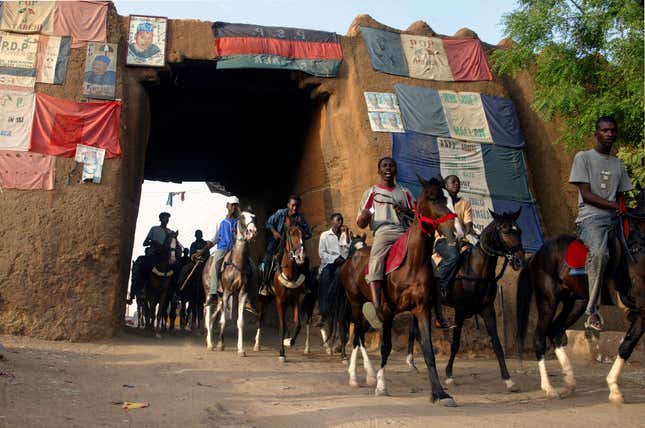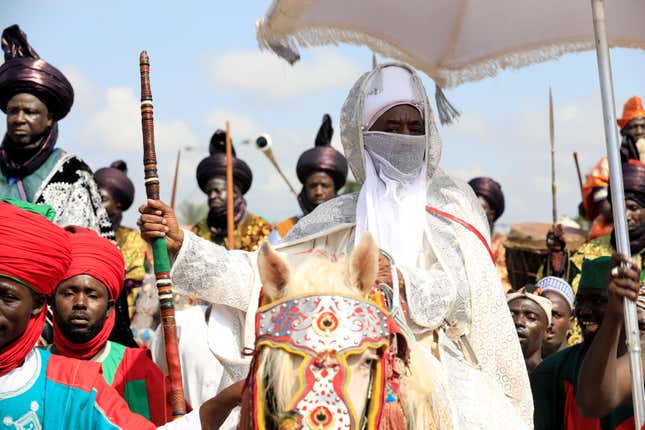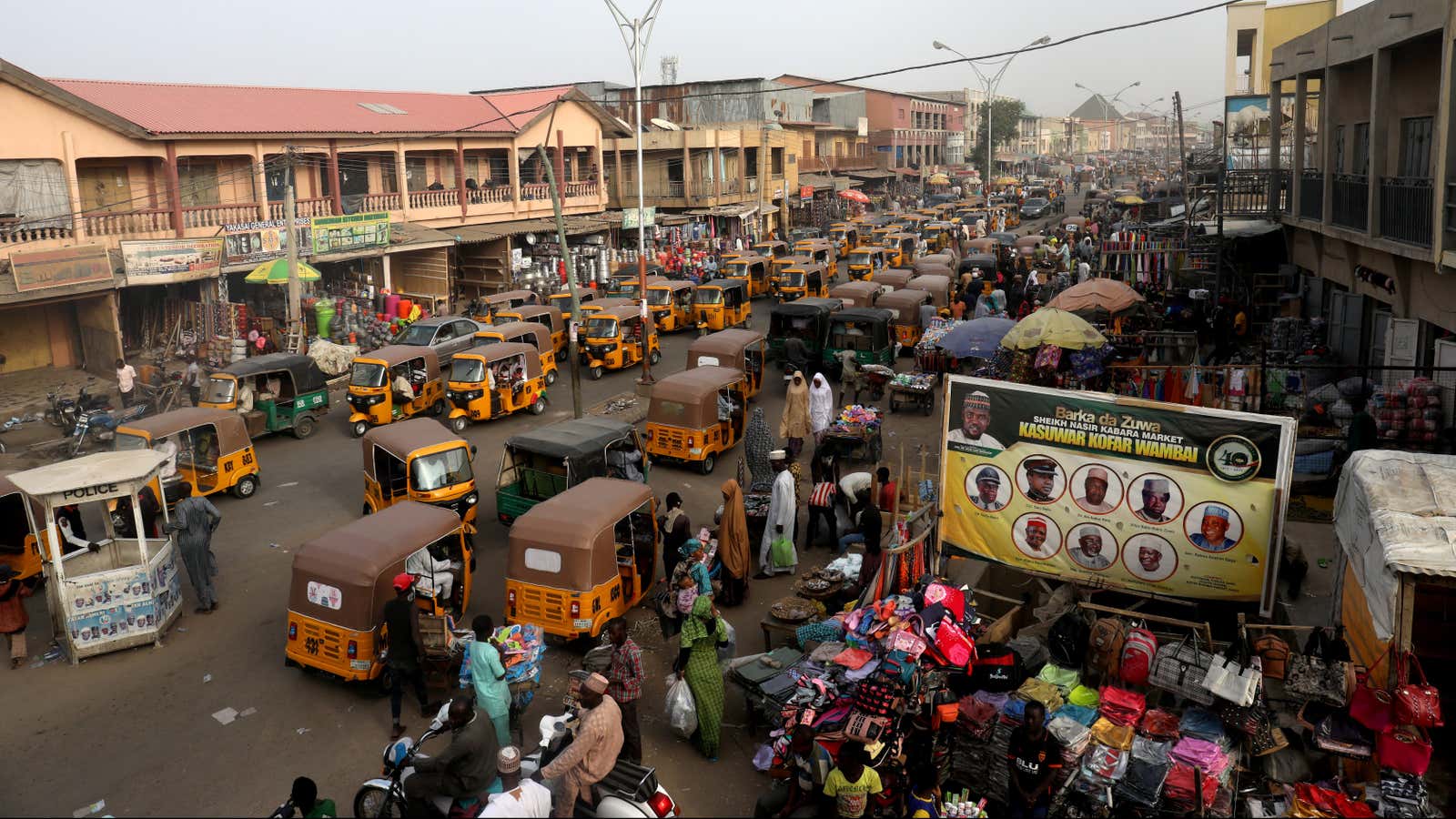As of early May, Nigeria, Africa’s most populous country, had over 3,000 Covid-19 cases and more than 100 deaths with most cases, unsurprisingly, being found in the country’s busy commercial capital Lagos and the federal government capital Abuja in the middle of the country.
However, there are now real concerns the pandemic has spread further than was initially thought, with Kano, the largest city in the country’s north, rising as a fast-developing hotspot. There’s been a mysterious spike in the number of deaths in the city, according to numerous reports which have suggested the symptoms of people who died are similar to those of Covid-19.
Local grave diggers have raised concerns they are burying a higher than usual number of bodies and there are similar reports from cemeteries across the city. While the exact number of deaths over the last two weeks is still in dispute, what is evident is the spike in fatalities. These deaths have also cut across all social strata and has claimed as victims numerous well-known personalities including a current and former police chief and a top traditional ruler in the state.
The Kano state government’s confusing response to the spike in number of deaths has only added concerns and uncertainty, especially after it initially dismissed the cases as not Covid-19 related. As of May 7, Kano state’s health officials said the state has had 490 cases and 13 deaths from Covid-19.
However, the federal government’s Presidential Task Force on Covid-19 attributed some of the deaths to the pandemic based on preliminary investigation, only to backtrack a couple of days later with the claim that the deaths were still being studied.
But at least two independent reports on the cases show the pattern of the deaths reflects those of the global pandemic in terms of symptoms, incubation period, age group affected and other demographic characteristics. Both reports conclude on the need for more testing and suggest that community transmission within the city has already been occurring.
“From a medical perspective, I do not believe that autopsies are necessary to say this is Covid-19, as there are significant infectious risks associated and it will take time to comprehensively complete one,” says Dr Zainab Mahmoud, a cardiology fellow at Washington University School of Medicine in St. Louis, MO, who hails from Kano and is part of a team behind one of the independent reports.“With the limitations on personal protective equipment available to those who will conduct the autopsies, I think it is wise to use them to help people rather than use them for autopsies.”
This means the government must intensify tracing contacts of the deceased and increasing testing – there are currently three testing labs in the state, one of which was donated by the foundation of Aliko Dangote, Africa’s richest man and a Kano native. The labs offer a combined capacity of 1,000 tests per day.
A lot of the blame for the likely spread of the disease has been laid at the feet of the state government, which has been slow to implement lockdown measures and has contradicted itself on how the lockdown should be implemented.
“The state government was not proactive enough in sensitizing the people on safety guidelines about the pandemic, especially considering the low education and literacy level in the state,” says Abdullahi Buhari, a Kano-based civil servant and political commentator. “Engagement with clerics, which would have gone a long way, was very low. They should have started intense sensitization from Nigeria’s index case, and not from the first case in Kano.”
But beyond the slow response of the state government, there is a lack of trust between the state and the people due to legitimacy problems arising from the re-election of the state governor, Abdullahi Ganduje in 2019 and a bribery scandal involving him in 2018.
Kano politics
An ancient city that grew as the southern tip of the trans-Saharan trade route which peaked between the 8th and 17th centuries, Kano is renown as a center of commerce. It has produced some of the continent’s most successful entrepreneurs, including Dangote, his great-grandfather Alhassan Dantata who was West Africa’s richest man at the time of his death, and his cement rival and fellow billionaire Abdulsamad Rabiu.

A change in the traditional leadership of the state is also thought to have had an impact in the public response to the pandemic in terms of awareness and preparedness: the centuries-old emirate in the state was balkanized into five emirates last year and the city’s high profile traditional ruler or Emir of Kano, Muhammadu Sanusi II, a former governor of Nigeria’s central bank was removed in a move widely seen as politically-motivated and deeply divided the state and beyond.
Some former supporters believe Sanusi would have got more of the local institutions working together as it’s been important to engage religious leaders in the predominantly Muslim city to raise awareness about the pandemic and for compliance with lockdown measures.

Sanusi’s successor, Aminu Ado Bayero has reiterated the government’s position on the cause of the mass deaths, and asked other traditional leaders and imams to lead the campaign on social distancing.
In the meantime, the deaths continue to pile up within the state, with a similar scenario unfolding in neighboring Jigawa state, which was carved out of Kano State in 1991 and continues to have a lot of linkages with it.
If these deaths end up being confirmed as caused by the Covid-19 disease, Kano, the third most populous city in West Africa, could very well be the epicenter of the pandemic not just in Nigeria but across the whole sub-region.
Sign up to the Quartz Africa Weekly Brief here for news and analysis on African business, tech and innovation in your inbox
